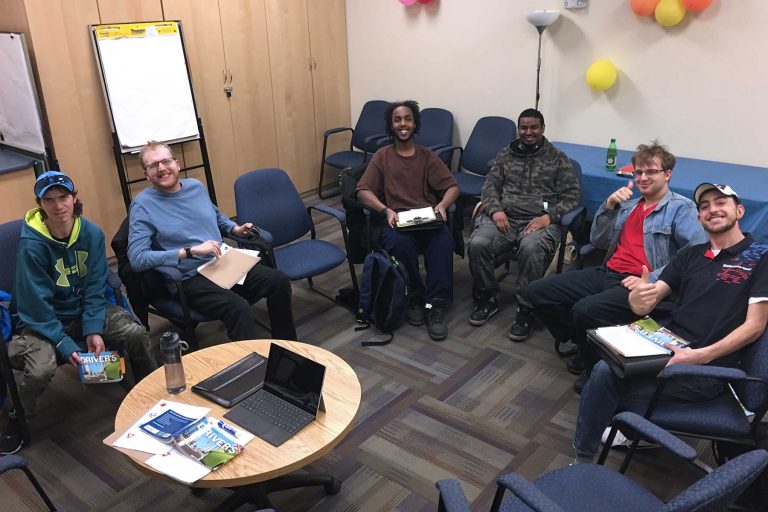Are You Thinking About Making Some Kind of Change in Your Life?
If you don’t know where to start or what to do next, a Planning Facilitator can help you make a plan.
Some examples:
- Leaving school (ex. high school or adult education) and wondering what you’ll be doing after graduation
- Moving
- Looking for work, professional experience or educational opportunities
- Wanting more meaningful activities and involvement
- To look at ways to have more friends or meaningful relationships
- A plan for housing and supports
- Maybe you’re just thinking about the future and would like someone to help you think about what’s really important to you
There are no age limits as it is never too early or too late to start thinking about and putting things in place for the future.
Person-Directed Planning and Facilitation has also been proven to be effective for every person inclusive of any disability, communication style, independence or decision-making capacity.
There is a fee for Person-Directed Planning and Facilitation. Eligible for Passport funding. Financial support available.
Are You A Family Member Or Caregiver Of Someone With A Disability And Are Concerned About A Transition Or Future Change For Your Loved One?
Some examples:
- Life after school
- Networks or circles of support
- Meaningful relationships
- Future planning: who will make sure my loved one will have a good life when I am no longer able to do so?
- Meaningful activities and involvement in community
Safe and Secure Book Club might be for you! We also have copies of the Safe and Secure Book available to families at no charge, until supplies last. Contact pdpf@able2.org to arrange to pick up a copy at the ABLE2 office.
Call 613-761-9522 ext. 201 or email info@able2.org to find out if PDPF is the right fit for you or see below for more information.
Planning For Yourself, Not By Yourself!
PERSON-DIRECTED PLANNING AND FACILITATION AT ABLE2
At the start of your relationship with us you’ll be speaking with the Manager: Planning & Funding Brokerage who will discuss with you what you are looking for, such as: what region, preferred language, male or female facilitator and the overall desired outcome of planning and facilitation.
Based on this information, the Manager will propose a Planning Facilitator that is a possible match for you, and confirm their availability to start planning.
You are encouraged to arrange a phone interview directly with the Planning Facilitator to decide whether the match will work for you both. Once this is agreed, the Manager is contacted, an agreement is signed, and payment arrangements confirmed.
You and your Planning Facilitator arrange your first planning meeting and decide on the visit schedule. These are typically once or twice per month.
If you are calling on behalf of someone else, you will also be discussing how the Planning Facilitator can develop a relationship with your loved one, so they may get to know them better, and the person can be as involved as can be in any planning process, have a voice and be heard.
FREQUENTLY ASKED QUESTIONS
What is the cost of PDPF?
PDPF is based on a fee of $55 per hour plus mileage.
Our experience has shown that a person-centred plan can cost anywhere from $1,500 to $2,500, depending on different factors, such as the person’s level of involvement, their current support circle involvement, readiness to plan, planning support requested, and distance travelled.
There is a fee for Person-Directed Planning and Facilitation. Eligible for Passport funding. Financial support available.
Passport Funding
PDPF can be paid with Passport funding available through the Ministry of Children, community and Social Services. Apply at a Development Services Ontario office.
Planning Facilitators
Planning Facilitators work for the person living with a disability and are accountable to them. They take time to understand the wishes, dreams, interests and abilities of the person so they can develop a personal plan that meets their unique situation.
A Planning Facilitator will help the focus person identify their:
- strengths
- interests
- capabilities
- dreams
- goals
and can include developing:
- strategies to achieve goals
- an outline of tasks and schedules to accomplish the goals
- a circle of support and to maintain it
- knowledge of services both community-based and government-funded.
Each Planning Facilitator is a self-employed contractor who has signed an agreement to offer Person-Directed Planning and Facilitation on behalf of ABLE2 across the Greater Eastern Region.
Some Questions to ask a Planning Facilitator
- What is your experience as a facilitator?
- What’s your availability? How often do you think we could meet?
- What do you think it might cost help me create the plan (I’m thinking of)?
- What are your ideas about this plan? What do you know about this?
- Where would we meet?
- Can you help me get places, or do we meet there?
- What will be the cost of your travel?
- If calling on behalf of someone else, you may also want to know how will the planning facilitator make sure that the person will be as involved as possible in the process?
Meet Our Planning Facilitators
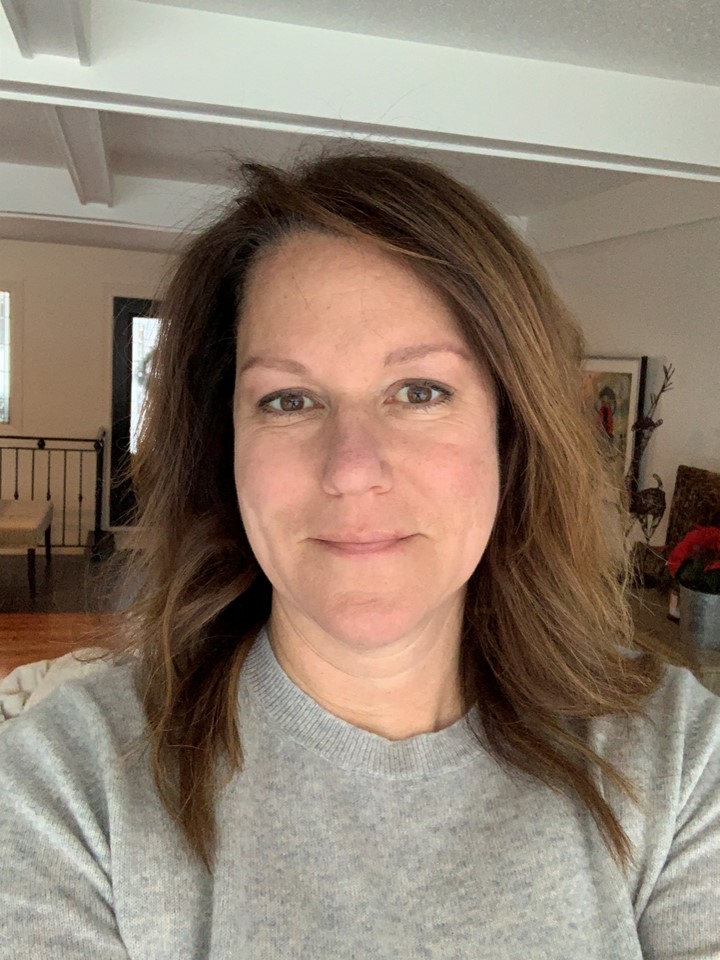
I have always been passionate about supporting inclusion and promoting inclusive communities in the Ottawa area. It is a privilege for me to support others to reach goals and build skills to get to live their best life. I have had the pleasure of working with individuals who have a variety of disabilities, including dual diagnosis and mental health challenges, to gain access to resources and services, and plan for a future they want for themselves.
Over 20 years ago, I began working as a Resource Consultant supporting children with disabilities and their families, childcare programs, nursery schools and school to create an inclusive learning and peer environment.
I have been working with youth and adults to meet goals and plan for independence, security and building a circle of friendship and support for over 7 years. My most recent experience as a facilitator is supporting young adults with FASD to transition to adulthood. I get to work closely with them, to set and work towards meeting their own realistic goals.
More recently, I ran several support and social groups for adults, youth and children with FASD, and have enjoyed getting to witness firsthand the difference these groups make for one’s social skills, confidence and knowledge building.
I truly feel there is always a solution to any challenge, and I take an ‘out of the box’, can-do approach to making things work.
We are all unique and have different skills, strengths and gifts to offer. I enjoy collaborating with individuals and families to identify and build those strengths and skills to support securing life goals.
Some of my interests are travelling, paddle boarding, hiking, cooking, reading and being with my family, friends and my dog Ollie.
I can support people who communicate in English and living in the greater Ottawa region.
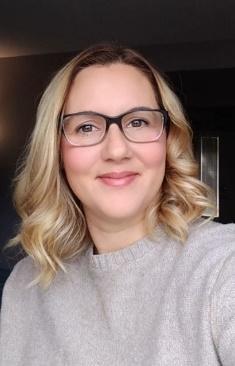
It is my belief that we are all of one community, a community where we elevate, strengthen and empower each other to achieve our goals. Throughout my 15 years working in social services, I have had the opportunity to play a supportive role to many people who find themselves at a time in their lives when they need an ally.
In my experience, I have found some of the greatest challenges and rewards have come from working with people. My career began working with young children, providing care and a beginning to their learning adventures. It was fun, energetic and allowed me to be creative and inspire that in others.
As my social services path continued, I was fortunate to have gained such great incite into the challenges faced by seniors in our community. Helping them maintain connections with family, peers and the community itself. I felt honored to be able to sit and listen to stories of their life experiences.
Finally, my path brought me to work in support of people with disabilities, running a community access day program. Because of the pandemic, families and young people desperately needed supports, and with creative problem solving and resilience on everyone’s part, the solutions revealed themselves.
I have learned many things throughout my experiences. Mindset matters, being fixed in your thinking limits your ability for growth. There is not a “one size fits all” approach to achieving your goals, and everyone should have the autonomy to choose their own path and have access to the supports they need to be successful along the way. Active listening is also a powerful tool. It is about listening and understanding where someone is at in their life so that you can be the support that they need not the support you may feel they need. And lastly always treating each other with kindness and respect. You never know what someone may be experiencing in their life and a little kindness goes a long way.
In my free time, I enjoy going to concerts or on adventurous road trips with my daughters. I would also never pass up the opportunity to watch a stand-up comedy show, laughter really is the best medicine. I have two energetic dogs that keep me on my toes. We are often out for walks exploring the neighbourhood. They are always on the lookout for some friendly neighbours who will stop and give them a belly rub.
What Is Person-Directed Planning And Facilitation?
A plan can take a variety of shapes and styles and these are individualized
Working with a person, a Planning Facilitator discovers what is most important to the person, what opportunities they want to pursue and how to achieve them. This is an ongoing process and it does not end once a written plan is developed, the process can carry on through someone’s life. The intensity of the planning will vary depending on the wishes and desires of the person.
Person-directed Planning and Facilitation are distinct, complementary aspects of person-directed planning. They both aim to expand a person’s community engagement and social inclusion.
PERSON-DIRECTED PLANNING or person-centred planning is a process of continual listening and learning. It is focused on what is important to someone now and for the future and acting upon this with the individual’s family and friends. There are five key features of person-centred planning:
- A person is at the centre.
- Family members and friends are partners in planning.
- The plan reflects what is important to the person, their capacities and what support they require.
- The plan results in actions that are about life, not just services and reflect what is possible, not just what is available.
- The plan results in ongoing listening, learning and further action.
FACILITATION is a process where the Planning Facilitator helps a person with a disability to make decisions about long term possibilities and the next steps to get there. Facilitation brings action and relationship support to the planning process. Facilitation aims to strengthen the person’s ability to have his/her wishes understood and broaden his/her self-determination, choice and control. Decision making always rests in the hands of the person. The purpose of the facilitation process is to listen to and nurture the gifts and capacities of a person to create a full life as a participating, contributing citizen in the community. The process may or may not involve a personal support network depending on the person’s wishes.
PDPF is guided by the following Values and Principles:
Values
- Belonging through a variety of relationships and memberships.
- Contributing by discovering, developing and sharing gifts and investing energy in meaningful activities.
- Sharing ordinary places and activities with other citizens, neighbours, friends, classmates and co-workers.
- Being respected as a whole person whose history, capacities and future are worthy of attention and whose gifts lead to valued social roles.
- Choosing what one wants in everyday situations and especially to dedicate oneself to contribute to one’s own community in ways that matter.
Principles
- Visioning – the person and those important to him or her describe his or her vision for the future in a plan. The goals are to anticipate life transitions and create a meaningful life in the community.
- Strengths-based – builds on the strengths, gifts, abilities and interests of the person.
- Person-driven – the person drives the planning process.
- Sustainability – the planning process considers avenues that can be pursued over the long term, and enables the person and his or her family, through knowledge transfer, to continue to keep the plan alive/updated.
- Accountability – there is ongoing review, evaluation, monitoring and modification of the person’s plan to support personal goal attainment.
What Does A Plan Look Like
A plan can take a variety of shapes and styles and these are individualized with you for your preference: it is your plan, after all!
Planning Facilitators have received training in a variety of planning styles and venues.
These are some examples of plans and tools some a facilitator might use:
MAP & PATH
Guide on person-directed planning
Plain language guide on person-directed planning
Circle of friends / support circle meetings
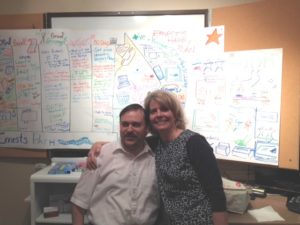
ABLE2 OTTAWA IS PART OF THE ONTARIO INDEPENDENT FACILITATION NETWORK
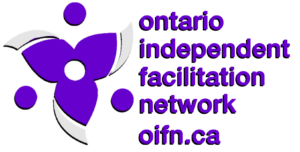
“Holly and I got to know one another, enjoyed some meals out, did some art and listened to music together. Together we created a one page profile that identified what people appreciated about Holly, what is important to her and how to support her well. Through this process she named many things she was interested to do. In February, Holly received word that she would have her Passport funding increased. Because of the planning, Holly had some solid ideas about things she wanted to do and where she wanted to do them. Today she makes jewellery or pottery one day each week, does fitness another day, works at the cafe at Y’s Owl Maclure for a day and works at Tim Horton’s on Edgewater each Thursday. On Friday mornings she is enjoying Zumba and pool exercises at the Kanata Wave Pool. Holly and her mom are very happy to have participated in the planning process. It helped Holly realize some of her dreams.”
Independent Facilitator
CONTACT INFORMATION
For more information please contact 613-761-9522 ext. 201 or info@able2.org
Documents to Sign
ABLE2 has a knowledgeable team of experts on disabilities, their challenges and the impacts on individuals and their families. External organisations requesting presentations on disability-related topics must complete our booking form. Once the form is received, we commit to getting back to you within five business days to discuss your request.

